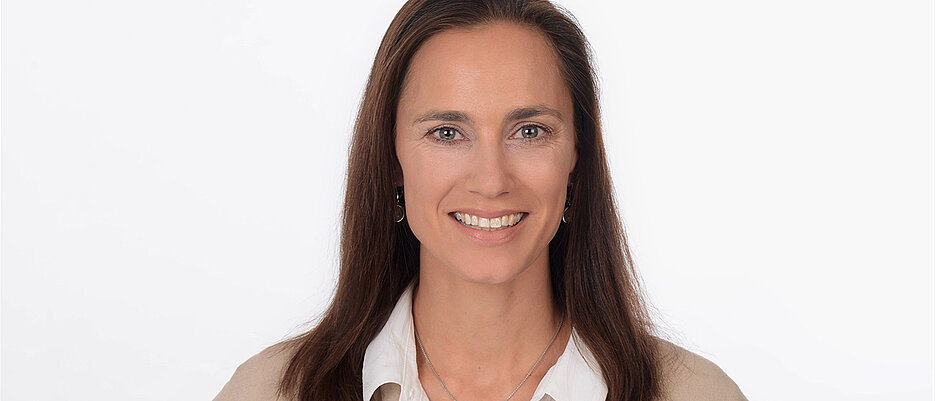ERC Consolidator Grant for Christina Felfe
12/09/2020Christina Felfe, Professor of Economics in Würzburg, has raised two million euros for her new project, which focuses on a socially relevant topic: dwindling social cohesion.

Saturday on the playground. "Look, there are some kids playing. Shall we go there?" The four-year-old daughter shakes her head: "I don't want to play with them. Because they're fat."
People decide very early in their lives which groups they want belong to and which they don't. The four-year-old girl could have equally answered “because they are dressed funny“, „because they wear headscarves“, or „because they are black”.
Favoritism for your own groups and discrimination against other groups are phenomena present across all societies. In increasingly diverse societies, the concern is that such group-oriented preferences threaten social cohesion," says Andrea Christina Felfe de Ormeño, Professor of Labour Economics, at Julius-Maximilians-Universität (JMU) Würzburg in Bavaria, Germany.
Germany-wide study from autumn 2021 onwards
When do group preferences start arising, how do they develop over childhood, what are the consequences for the economy and society? Scientific evidence on these questions is scarce. The JMU professor would like to change that with a large-scale study conducted all over Germany.
For her project "Early Origins of Social Cohesion in Increasingly Diverse Societies", short called KIDSNGROUPS, she has won a prestigious funding award: a consolidator grant from the European Research Council (ERC) worth two million euros. With such grants, the ERC supports outstanding researchers whose work promises groundbreaking research in the near future. This is the first ERC grant ever awarded to the Faculty of Economics and Business Administration at JMU.
Surveys in kindergartens and schools
In her five-year project starting in autumn 2021, Christina Felfe wants to investigate the role of parents, classmates, teachers and general socialisation processes for the formation of group preferences.
Access to unique databases is key: Through her established cooperation with various German school and health authorities, she enjoys access to data resulting from the compulsory school entry examinations carried out in Germany in the year prior to entering primary school.
In addition, she will conduct complementary data collections in kindergartens and schools throughout Germany. From 2022, she will interview several thousand children and their parents. The primary survey method is computer-assisted behavioural experiments, state-of-the-art methods in experimental economics or psychology. This method will allow her to measure children’s group belonging and children’s behaviour towards their own and other groups. Classical surveys with parents will complete the picture. Parents will answer questions regarding their job, how much time and money they invest in their children, allowing to dig deeper into the role parents play when it comes to the inclusive or exclusive behaviour of their children.
This enormous data collection is expensive and will require its share of the two million euros provided by the ERC. More importantly, Christina Felfe plans to hire two PhD students and numerous student assistants helping with the surveys conducted in kindergartens and schools. This is crucial to foster the next generation of excellent researchers.
Economics or psychology
Christina Felfe is head of the JMU Chair of Labour Economics since 2018. When reading about her project KIDSNGROUPS, one initially thinks about psychological research. How can this be explained?
"Economists who want to expand the horizon of their own discipline must be open to interdisciplinary work," says the Würzburg professor. That is why she maintains close cooperation to colleagues from other disciplines at JMU, among them social psychology. "Unlike in psychology, however, we work with very large, diverse and representative samples. Our ultimate objective is to provide recommendations for public policies."
Career of the ERC laureate
Andrea Christina Felfe de Ormeño, born in 1978, was born in Würzburg. After graduating from the local Riemenschneider Gymnasium, she studied International and Cultural Business Studies and Economics at the University of Passau and the Humboldt University in Berlin.
She completed her PhD in Economics in 2008 at the Universitat Pompeu Fabra in Barcelona; she then continued her career as an assistant professor at the Universität St. Gallen. She has spent several visits at universities in Amsterdam, London and Munich. In 2018, she accepted a position as Full Professor and Chair of Economics at the JMU.
Contact
Prof. Dr. Christina Felfe de Ormeño, Chair of Economics, in particular Labour Economics, T +49 931 31-84969, christina.felfe@uni-wuerzburg.de






